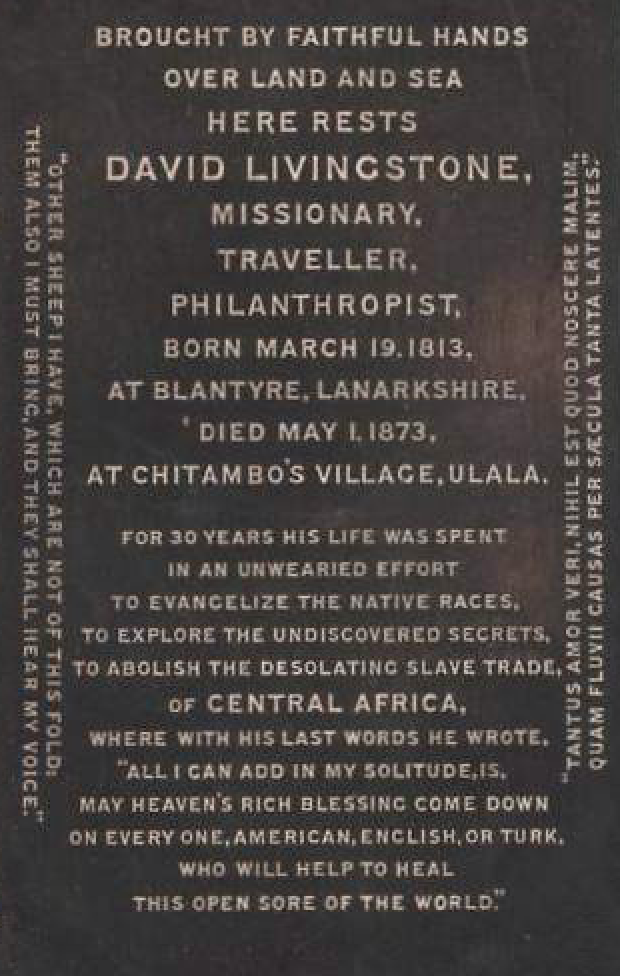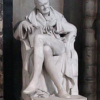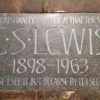After rejoicing that William Wilberforce is memorialized in Westminster Abbey, I now continue to wonder what people think if they read these words in that same building about David Livingstone, who is buried there:
BROUGHT BY FAITHFUL HANDS OVER LAND AND SEA HERE RESTS DAVID LIVINGSTONE, MISSIONARY, TRAVELER, PHILANTHROPIST, BORN MARCH 19. 1813 AT BLANTYRE, LANARKSHIRE, DIED MAY 1, 1873 AT CHITAMBO’S VILLAGE, ULALA. FOR 30 YEARS HIS LIFE WAS SPENT IN AN UNWEARIED EFFORT TO EVANGELIZE THE NATIVE RACES, TO EXPLORE THE UNDISCOVERED SECRETS, TO ABOLISH THE DESOLATING SLAVE TRADE, OF CENTRAL AFRICA, WHERE WITH HIS LAST WORDS HE WROTE, “ALL I CAN ADD IN MY SOLITUDE, IS, MAY HEAVEN’S RICH BLESSING COME DOWN ON EVERY ONE, AMERICAN, ENGLISH, OR TURK, WHO WILL HELP TO HEAL THIS OPEN SORE OF THE WORLD”
What do most people today think the word “evangelize” means? How many disdain the notion of a missionary as some kind of Western imperialist white supremacist? Or do they think highly of someone who, like Wilberforce, worked to rid the world of “the desolating slave trade?”
In her important collection of missionary biographies, From Jerusalem to Irian Jaya, Ruth Tucker had this to say: “Never in the annals of missionary legend has a man been more lionized than David Livingstone. He was the hero that Victorian England so desperately needed, and the recognition he was accorded fueled African missions for most of a century.” (p. 147)
Here’s just one tidbit I learned from Tucker’s account. Many know the quote, “Dr. Livingstone, I presume” but have no idea of what set the stage for those words. After Livingstone had embarked on his third exploration of Africa (with the stated goal of discovering the source of the Nile along with the lesser known agenda of fighting the African slave trade and spreading the gospel), The New York Times sent a reporter, Henry Stanley, to cover the story. When Stanley arrived with medical supplies and food that Livingstone desperately needed, he came upon the only white man he’d seen after months of searching and uttered: “Dr. Livingstone, I presume.”
Here’s what Stanley had to say about that meeting and the friendship that developed for months afterward: “I went to Africa as prejudiced against religion as the worst infidel in London….But there came to me a long time for reflection. I was out there away from a worldly world…For months after we met I found myself listening to him, wondering at the old man carrying out the words, ‘leave all and follow me.’ But little by little, seeing his piety, his gentleness, his zeal, his earnestness, and how he went quietly about his business, I was converted by him, although he had not tried to do it.” (quoted by Tucker, p. 153)
I doubt that Livingstone would say, “I ‘had not tried to do it.’” And I also doubt that tourists who might be “as prejudiced against religion as the worst infidel in London” couldn’t be converted when they read Livingstone’s “living stone” on the floor of Westminster Abbey. As they pass through a place “away from a worldly world,” may they hear the still small voice say, “leave all and follow me.”



